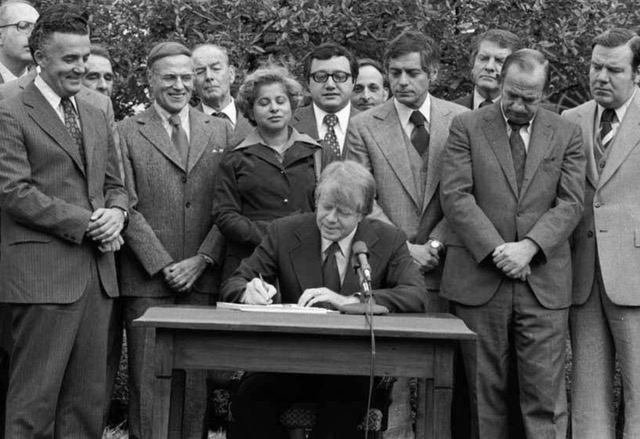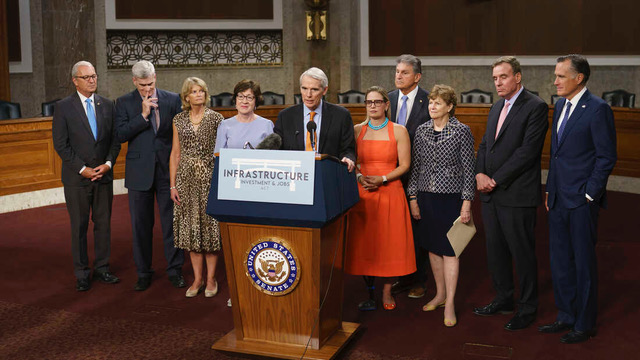While we’re dancing the Pandemic Polka and watching the Trump Tax Return Tango, it would be easy to ignore the Black Business Ballet now being choreographed under the Biden Infrastructure Plan. That would be a mistake. The roughly $1.2 trillion infrastructure bill – the largest steel-and-concrete federal spending package in a generation – has cleared the Senate on a rare bipartisan vote and likely will gain House approval this Fall – one way or the other.
The Biden mega-plan would provide funds to rebuild roads and bridges, expand airports like O’Hare International, modernize Union Station, extend the CTA Red Line and even replace $15 billion worth of lead water pipes in less affluent neighborhoods across the nation. State and local governments will decide where much of these funds get spent. Hereabouts that means IDOT, CTA, Metra trains, PACE buses, and the RTA.

The stakes for Black-owned businesses and construction workers could not be higher. Several in-the-know construction execs predict that nationally there could be $150 billion to $300 billion worth of Black business opportunities over the Biden Plan’s 10-year disbursement run. It’s hard to be more exact because various states and localities have very different minority set-aside programs. For instance, the RTA, which funnels tax funds to CTA, Metra, and Pace, has a 16.2 % goal on contracts under its procurement rules. Illinois does 20%, though many states do far less, pointing to U.S. Supreme Court rulings that have limited outright mandates.
So the overture has begun to this production and the curtain is about to rise. Trouble is, the music is complicated, the script is only partially written and the dance steps are – in a word – tricky.
History Lesson…

What must be done, then, to take advantage of all this? Past being prologue, it might help to look at what we in the trades did leading up to, and following, the seminal Public Works Act of 1977. Those stars didn’t align by themselves. We worked the corners, convened conferences, met at meetings (often behind closed doors), and otherwise coaxed and cajoled our way to an unprecedented minority set-aside framework, much of which survives today.
Praise be to the late Congressman Parren Mitchell for his deft maneuvering among the U.S. Department of Commerce, the U.S. Small Business Administration, the National Association of Minority Contractors, and, of course, the Congress of the United States.
But that was 1977. Jimmy Carter was in the White House, and Democrats held supermajorities in both the Senate and House. Today we also have a labor-friendly president, but the Senate is evenly split, and Democrats hold a razor-thin majority in the House. Moreover, some of those House Democrats are threatening to take a walk on the Biden Plan unless they first went passage of an additional $3.5 trillion program of social and environmental programs. Republicans are saying no way to that linkage.
But again, history holds some valuable lessons. The Public Works Act of 1977 was “only” a $4 billion program, but it set important precedents for Minority Business Enterprises (MBE’s) and fixed percentages of set-asides.
Parren Mitchell (D-Maryland) chaired the House Small Business Committee and wisely set up an informal Black business brain trust of which this writer was a grateful member. So advised, Mitchell’s committee set in motion the 10% minority business requirement that became part of the Public Works Act. This opened the door for my fledgling UBM construction company and many other members of the National Association of Minority Contractors (NAMC) to participate in federal contracts.
But it was easier said than done. Critical to this opportunity was our ability to talk to and gain information from the various agencies tasked to bid and let those contracts – and make sure MBE’s got their share. Then and now, however, government agencies are wont to, and often barred from, having direct pre-bid contact with specific companies. However, organizations advocating for Black businesses can have access and establish a dialogue with agencies. That now betokens the value of today’s Business Leadership Council, just as back then we rallied behind the NAMC. The latter group, by the way, is still going strong. Curtis Thompson, the lead representative of the Chicago area NAMC, can be reached at Curtis@Namc-chicago.org.
And one final but crucial history lesson: Get ready to play some Defense! As in the past, there will be some folks who claim any MBE set-aside provisions are nothing by “reverse racism. “Biden’s Infrastructure bill is chock full of anti-white racism,” shrieked a recent op-ed headline in the New York Post. Author Betsy McGaughey trots out the tired, worn-out argument used by white racists that claim anything done to assist Blacks takes away from whites. You know, the old zero-sum game. They act like nothing is owed to those shut out by 400 years of slavery, 100 years of Jim Crow, and the much more recent, systematic exclusion of Blacks from trade unions and Black-owned businesses from lists of qualified bidders. Tell the truth. Enough is enough.

Action Items
So what’s our first move?
1. Charles Smith, Chairman of the Business Leadership Council, hosts a series of in-person and virtual meetings. He has agreed to dialogue with funded agencies to advance business opportunities for BLC and Black businesses at large. He has already hosted hybrid meetings with Omer Osman, Secretary of Transportation, and with IDOT to better link Black businesses with Illinois projects. Contact Psande@blcchicago.com.
2. Joseph Williams, President of the Target Group, leads an organization that matches Black contractors with major construction projects. Target also connects Black job aspirants with entry-level and journeyman-level construction jobs. Target under Williams also is planning an unsolicited proposal for a multi-year program to provide management and technical assistance to Black contractors. Included would be pre-apprentice training leading to entry-level positions for Black candidates. The Biden infrastructure package will create some 11 million jobs, generating some $1.5 trillion in earnings for some 647,000 Black hires. Contact jwilliams@targetgoupinc.com.
3. The federal Minority Business Development Agency (MBDA) is tasked with getting the word out and helping MBEs with compliance issues. Kandice Brown KandceBrown5@MBDA.gov and Antavia Grimsley represent this agency of the U.S. Department of Commerce. See AGrimsley1@MBDA..gov. MBDA will host a national Minority Enterprise Development (MED) week September 19-25 so that both private and government buyers can advise minority providers of products and services. More info at https://medweek.mbda.gov/
4. Congressman Danny Davis, who announced his candidacy for re-election on August 8, has vowed to work with Sen. Rafael Warnock (D-Georgia) and his staff of the Senate Committee on Commerce, Science and Transportation. This committee will have oversight of many infrastructure dealings.
5. Congressman Bobby Rush, chairman of the Energy Subcommittee of the House Committee on Energy and Commerce, has agreed to designate a staff member to follow up on Black Business opportunities in the new infrastructure program. A major part of the plan is the expansion and modernization of the nation’s electrical grid, a huge potential for Black businesses.

Not Just Hard-Hat Jobs…
Of crucial importance throughout is the realization that the 2,702-page Infrastructure Investment and Jobs Act won’t just create work for those with hard hats and muddy boots. Besides all the architects, engineers, and white-collar estimators, there will be opportunities for businesses providing insurance, legal services, communication specialists, passenger car repair and maintenance, advertising, technology consulting, and public relations. And if Democrats succeed in linking the Infrastructure plan to their even larger proposal for $3.5 trillion in education and social services, you can add lots of teachers and health care workers.
But the passage of federal spending plans, no matter how big, is only the front half of a long battle. After the happy press conferences are over in D.C., the critical back half requires us to work quietly behind the scenes to link our companies and, most importantly, our people, especially people-in-need, to the jobs pipeline. Right now, we need to: 1) Identify which agencies in Chicago will be receiving these funds; 2) Establish communications with the Minority Business offices in each of those agencies; 3) Determine which large firms we can market to, or joint-venture with, if you are a small business or sub-contractor; and 4) Match your business with the location and scope of available contracts and interest.
Summing Up….

Now is the time, while the Infrastructure bill is lumbering its way toward a signed law, for Black businesses to get our ducks in a row. This is especially true while we are in a pandemic. For instance, MBEs need to take advantage of the huge savings of time and money made possible by less travel and more virtual meetings. The flip side, of course, is the challenges of managing staff productivity and morale while employees are in a hybrid situation. Not to mention the unpredictable availability of clients (especially those responsible for accounts payable!)
But seriously, the orchestra is playing a grand overture, and the curtain is about to rise on one of the greatest opportunities of our lifetimes. We are like the young Alexander Hamilton at the opening of this new, unbounded nation in many respects.
It’s time to focus like laser beams on the opportunity that awaits. Like the young man from the West Indies rapped in Broadway’s Hamilton:
Rise up; it’s time to take a shot
Rise up; take a shot, shot, shot
It’s time to take a shot, time to take a shot
And I am not throwin’ away my
Not throwin’ away my shot
 Paul King is a construction consultant and member of Chicago’s Business Leadership Council.
Paul King is a construction consultant and member of Chicago’s Business Leadership Council.





